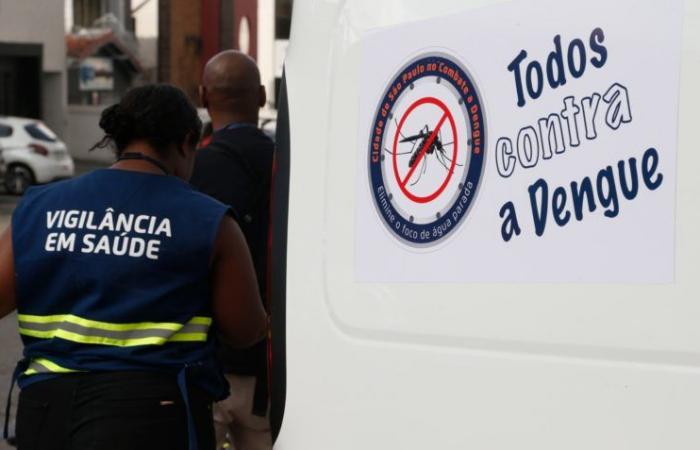When a person has the disease for the second time, the condition may worsen after they begin to feel better from the initial symptoms.
Dengue is a disease transmitted by 4 serotypes of the same virus that can infect humans through mosquito bites. Aedes aegypti.
In most cases, the disease manifests itself asymptomatically or mildly, with temporary symptoms that improve within two weeks, thanks to the antibodies produced by the body and the cellular response. Antibodies and defense cells ensure protection against future infections by the serotype that caused the disease, but the person remains susceptible to the other 3 types of the virus.
And it is exactly the 2nd infection that most worries experts in relation to dengue, as the chance of developing a serious illness increases considerably. Decades of research indicate that one of the main reasons for this increased risk is the immune system itself.
During reinfection, antibodies specific to the old serotype even recognize and bind to the new type, but are often unable to neutralize it. As a result, they end up doing the opposite, helping the virus to enter cells and replicate.
“Antibodies that do not neutralize can, in fact, worsen the dengue condition. The same happens with T cells: memory T cells formed in the first infection are reactivated in the second and produce a much more robust response, but they are often unable to kill the infected cells. This can contribute to the individual becoming sicker.”says dengue specialist and scientific reviewer at the United States National Institute of Health (NIH) Anuja Mathew.
This explains why the international scientific community has established that a dengue vaccine needs to be tetravalent – like the Butantan vaccine candidate, developed in partnership with the NIH. By protecting against 4 viruses at the same time, there is no risk of the vaccine worsening a possible infection. Furthermore, it can be safely applied to those who have already had dengue, that is, who already have immunity against one of the serotypes.
RISK FACTORS
The severity of the disease depends not only on previously acquired immunity, but also on the genetics of the virus itself. A meta-analysis conducted by Malaysian researchers and published in the journal PLOS One demonstrated that the DENV-2 and DENV-3 types in Latin America had a higher percentage of severe cases in reinfections. In Southeast Asia, DENV-2, DENV-3 and DENV-4 showed a higher risk of causing severe disease in the second infection.
Anuja Mathew states that there are several other factors that can make one person sicker than another, such as genetic factors, comorbidities and nutritional issues: “There is no single answer and the reasons may vary from individual to individual. In an endemic country like Brazil, where people are constantly exposed, the chance of having a serious illness increases”.
A systematic review carried out at the University of Tokyo, Japan, published in Journal of Vector Borne Diseasesshowed that the relative risk of having symptomatic disease in the second infection is 9.4 times greater, and the risk of serious complications is 23.7 times greater.
HOW TO KNOW IF THE CASE IS SERIOUS
Generally, in viral diseases, symptoms worsen at the peak of virus replication, that is, when there is more virus circulating in the body. But, in the case of dengue, the opposite happens: the patient may present a “false improvement” and then the disease gets worse. “Initially, in the second infection, the individual may have symptoms for a few days and then start to feel better. But it is when the fever and viral load decrease that the condition can worsen. Hemorrhage, a hallmark of dengue, occurs when the virus is no longer detected in circulation.”explains Anuja.
Therefore, it is important to know the so-called warning signs. At first, dengue can cause high fever, pain in the body and behind the eyes, red skin and fatigue. However, if the patient begins to have symptoms such as severe abdominal pain, persistent or bloody vomiting, bleeding of mucous membranes, paleness, drop in body temperature, among others, urgent medical attention is needed to avoid more serious complications, such as hemorrhages. , circulatory collapse and organ failure.
It is also necessary to be aware of appropriate treatments and never self-medicate without medical advice. Some medications can worsen the disease and should be avoided, such as non-steroidal anti-inflammatory drugs (ibuprofen, diclofenac, acetylsalicylic acid, salicylic acid, diflunisal, sodium salicylate, methylsalicylate) and corticosteroids.
With information from the Government of SP.






